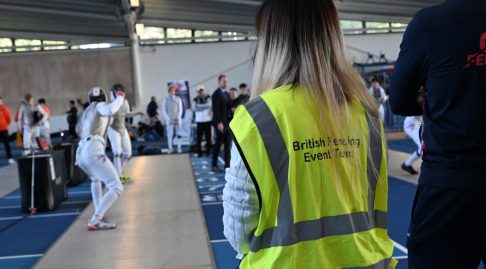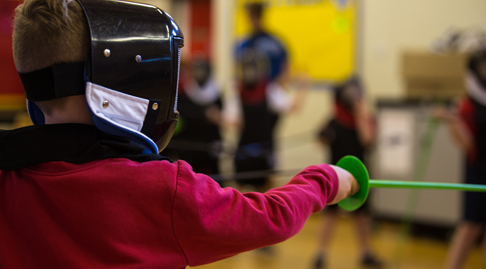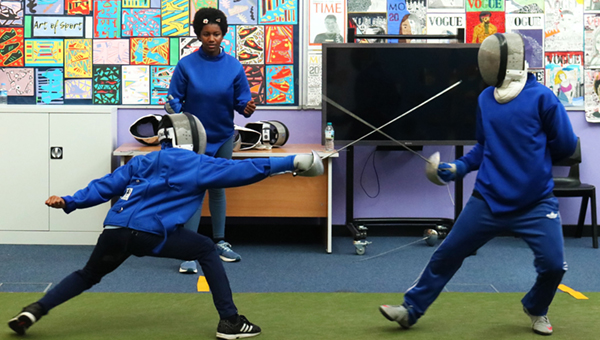


Welcome to stage 4 of your introduction membership journey. Here you we will be talking all things BF competitions, which competitions are best for you, the structure and what to expect from your first competition. Once you have this information you’ll want to find a competition near you. You can find these competitions through our events calendar
It’s important to think about what you want out of a competition experience. What is right for you (or your child)? Do you want something where the focus is on fun, developing your skills (maximising what we call ‘time on task’) or are you desperate to launch into the world of ranking points and pit your skills against the very best? Whilst the latter can be tempting, it’s important to understand that the format of the top competitive events (1 round of poules and a DE) are typically designed so the very best will fence the very worst in the DE. This can create huge disparities in ability and not always the best experience for a fencer starting out. You will also be up against people prioritising performance and rankings and if you are after more friendly, welcoming experience this might not be the best option.
The first person to ask will be the club coach. They will be best placed to help you navigate what competitions are available. All BF licensed recreational and competition events are listed here on the BF website, but your club may run inter club/school/uni matches which might also be a good friendly first experience.
There are different types of competitions in the pathway that may be more suited to fencers looking for a more friendly environment.
For an adult fencer our expectation is that the competition pathway would include:
When should I arrive? Competitions will normally publish a check-in time, which is a time by which all the participants must have arrived by. Organisers can be quite efficient and want to start the competition not long after the check-in closes so plan your arrival time around how long it takes you to a) find your bearings, b) get ‘settled’ c) get changed d) warm-up e) gather up your equipment and get over to the poule.
What do I do on arrival? First thing is to get checked in with the organisers so they know you are there. This is a good time to also ask the person at the check-in desk (who may be a member of the organising committee) if there is any update on a likely start time. If you are bringing kids to compete make sure you know who the event welfare officer is (there should be posters and signs up)
What do I do with my fencing bag? Some competitions might have a special room or storage area for your fencing bag and it is rare that you are allowed to bring a large fencing back right next to where you are fencing, in the ‘field of play’. Sometimes people bring smaller piste side bags (top bags). Either way you don’t want to be leaving valuables in your fencing bag if it’s out of your sight, and if you can’t avoid this think about locking your fencing bag with a small padlock.
What should I bring with me? equipment, food etc? You will need a full set of fencing equipment – shoes, socks (pulled up over the knee), breeches, jacket, underplastron, mask, glove and a minimum of 2 working weapons, 2 body wires and a lame jacket if you are doing sabre or foil.
in addition, you should bring a re-usable water bottle, face towel, snacks (easily digestable carbs) and changes of T-shirts. Venues can often be cold so bring a tracksuit top or jacket that you can put over your fencing jacket between bouts to keep warm.
Who are the people in charge? The Directoire Technique (DT) is the group of individuals (usually around 3 people) responsible for managing and and running the competition. They will make all the main decisions and are the highest authority on the day. There will also be Welfare Officers, Referees, Armourers and other officials. Many of the people who get involved in grass roots competition don;t get paid, they are volunteers who give up their weekends, often spending their time away from their family and friends to give other people the chance to compete. So always treat them with respect!




Activate your free, 90 day membership to British Fencing today. Membership insures you to fence at any British Fencing club.
Join Today
Does your organisation want to bring fencing to your community? Explore our core coach course, no experience required.
Core Coach
Start your journey to becoming a community fencing coach. Introduce fencing to pupils for as little as £25. Find out more today.
Learn More
Sign up to receive regular highlights from the exciting world of fencing - celebrating the best of our unique and inspiring community